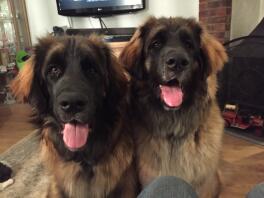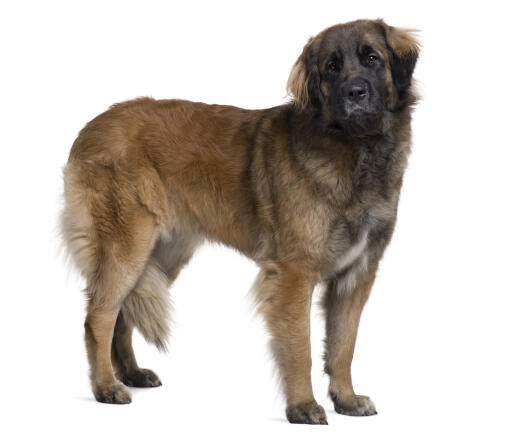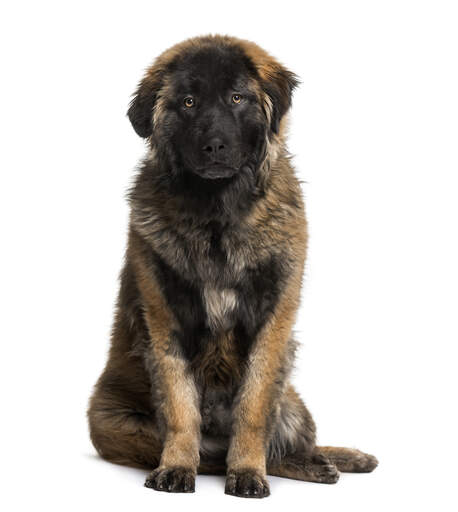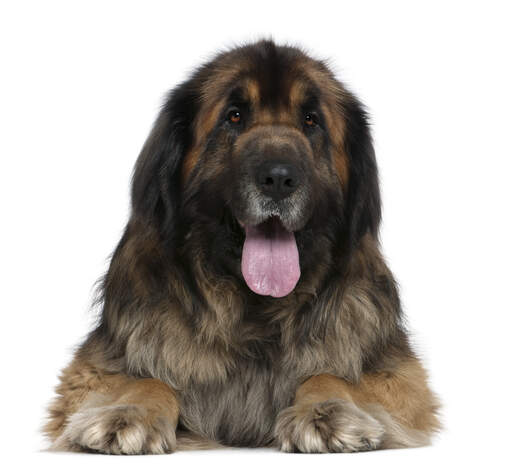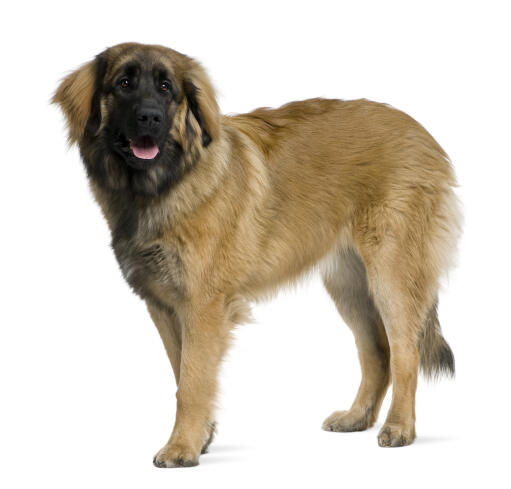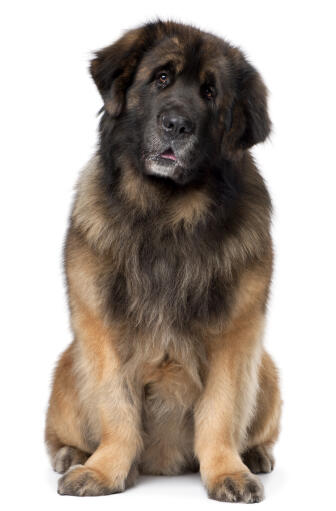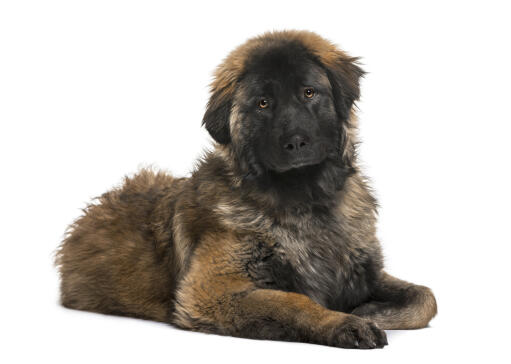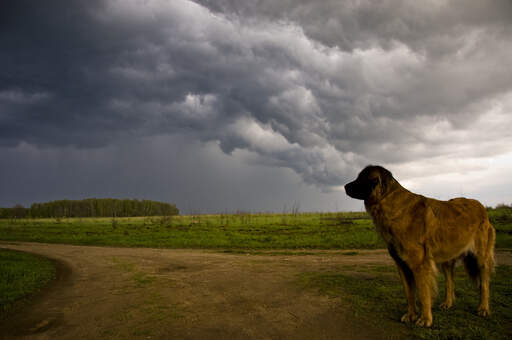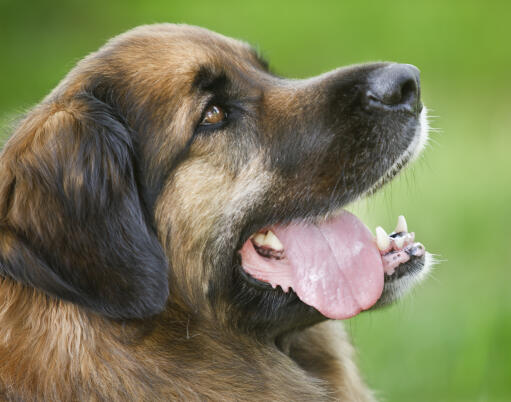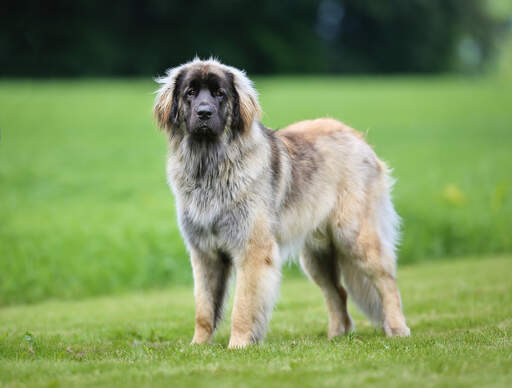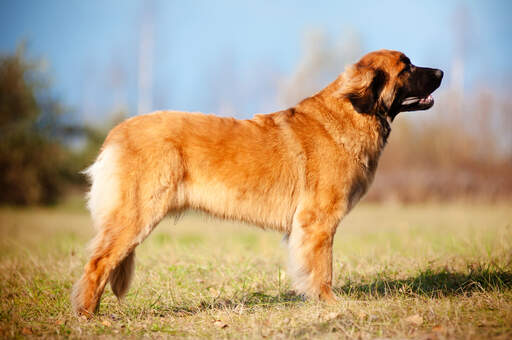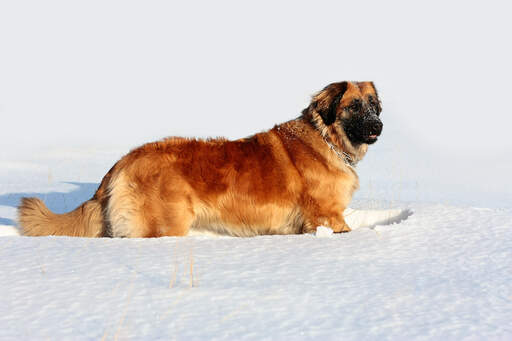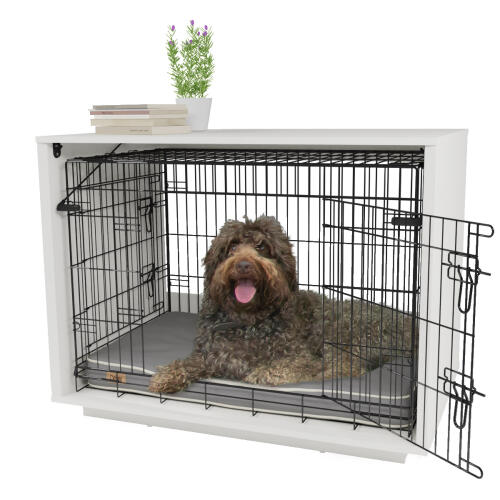Leonberger Dogs











History
This breed was first registered in 1846 by Heinrich Essig from Leonburg, Germany (hence the name). It is thought that they are a cross between a Newfoundland, St Bernard and Pyrenean Mountain Dog. This being said, even as early as 1585, dogs of the same description had already been documented, so their real origins remain unknown. They were used as farm dogs, mainly for pulling small carts and as watchdogs.
Behaviour
Leonbergers are family dogs that are happiest when surrounded by those they love. They fit well into most homes, but their huge size means that they literally might not fit into your home. They are great with children, other pets and dogs alike. They tend to be submissive towards members of their human family. Nowadays they are often used as water rescue dogs, as they are strong swimmers with a natural love for water. In other parts of the world they are still used to pulling carts. They are intelligent and kind dogs who rarely show any aggression, unless provoked first.
As with all dogs, training is important, but even more so with a dog of this size. An untrained Leonberger dragging you down the road would be both painful and a nuisance. Obedience can take a bit of time with this breed, but this is down to their playful nature rather than unwillingness to learn.
Leonbergers have a double coat. The longer outerciat lies flat to the body, covering up the thicker, softer undercoat. They will moult profusely. They should never be shaved as this can cause their hairs to grow back curly and mess up their natural heat regulation. Regular brushing, however, is important. A drag come should be used.
Despite being such a large dog, they don’t need masses of exercise. A good length walk each day will do the trick. Other than this the occasional scratch behind the ear will keep them happy.
Generally a strong, healthy breed, Leonbergers are not super prone to any health problems. They can suffer from bloat, so it’s best to give them two smaller meals a day rather than one large meal.
Temperament
Authoritative and athletic derive this breed. Despite their large size, they are surprisingly athletic and will have great fun when out on a walk. They will develop protective instincts as they mature, early socialisation will prevent any problems later down the line. Two Leonbergers of the same sex should not be kept together, as they will constantly be at each others throats.
Health Problems
Leonbergers are prone to canine hip dysplasia (CHD), elbow dysplasia, osteochondritis (a type of cartillage inflammation), Addisons disease (a hormonal disease with some serious symptoms), blood clotting disease, and heart disease.
Breed Details
- Status: Common
- Life Expectancy: 6 - 9 years
- Weight: 100 - 170 Ibs
- Height: Male 29 - 31" Female 26 - 29"
- Rare: No
- Coat: Medium
- Grooming Requirements: More than once per week
- Town or Country: Country
- Minimum Home Size: Large House
- Minimum Garden Size: Large Garden
- Breed Type: Working Dog
- Size: Giant
- Energy Level: Medium
- Exercise Required: Over 2 hours
Leonberger Pictures
